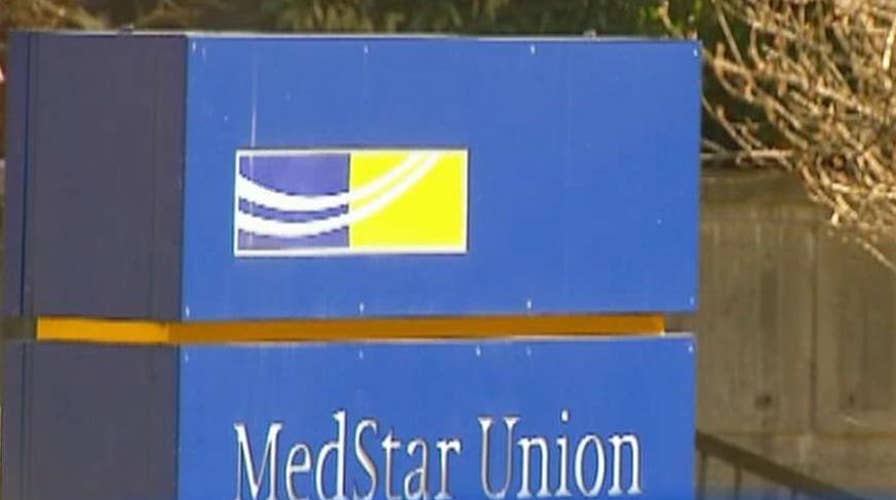Hospital hack: Virus infects Medstar health system computers
Dr. David Samadi, Morgan Wright weigh in on the impact on patients
A large chain of Washington-area hospitals says it's made "significant progress" toward restoring its computer systems after a cyberattack and it has "no evidence" that patient information was stolen or compromised.
MedStar said in a statement Tuesday that it hoped to restore the majority of its computer systems.
The company said its network of 10 hospitals and thousands of affiliated physicians remains open, "with a few unique exceptions."
The FBI is investigating the malware attack on Medstar Health Inc. that forced the hospital chain to use paper systems and prevented patients from booking appointments.
The health group, which runs 10 hospitals, the MedStar Health Research Institute and the MedStar Medical Group, describes itself as the largest healthcare provider in the Maryland and Washington, D.C. region.
The company hasn't said whether Monday's malware attack on its computer system included a ransom demand.
Hospitals have become a target for cybercriminals using ransomware, malicious software used to extort money. The software can encrypt files until a ‘ransom’ is paid in a difficult-to-trace digital currency, such as bitcoins.
The scale of the ransomware threat was highlighted last month when a Los Angeles hospital paid nearly $17,000 in bitcoins to hackers who disabled its computer network. Henderson, Kentucky-based Methodist Hospital suffered a ransomware attack in February.
During 2013, the number of attacks each month rose from 100,000 in January to 600,000 in December, according to a 2014 report by Symantec, the maker of antivirus software.
A report from Intel Corp.'s McAfee Labs released in November said the number of ransomware attacks is expected to grow even more in 2016 because of increased sophistication in the software used to do it.
The company estimates that on average, 3 percent of users with infected machines pay a ransom. It's not clear how many of those users were individuals and how many companies. Some ransomware attacks go unreported because the victims don't want it publicized they were hacked.
The first fully functional ransomware targeting Apple’s Mac OS X operating system was identified by security specialist Palo Alto Networks earlier this month
The Associated Press contributed to this report.









































